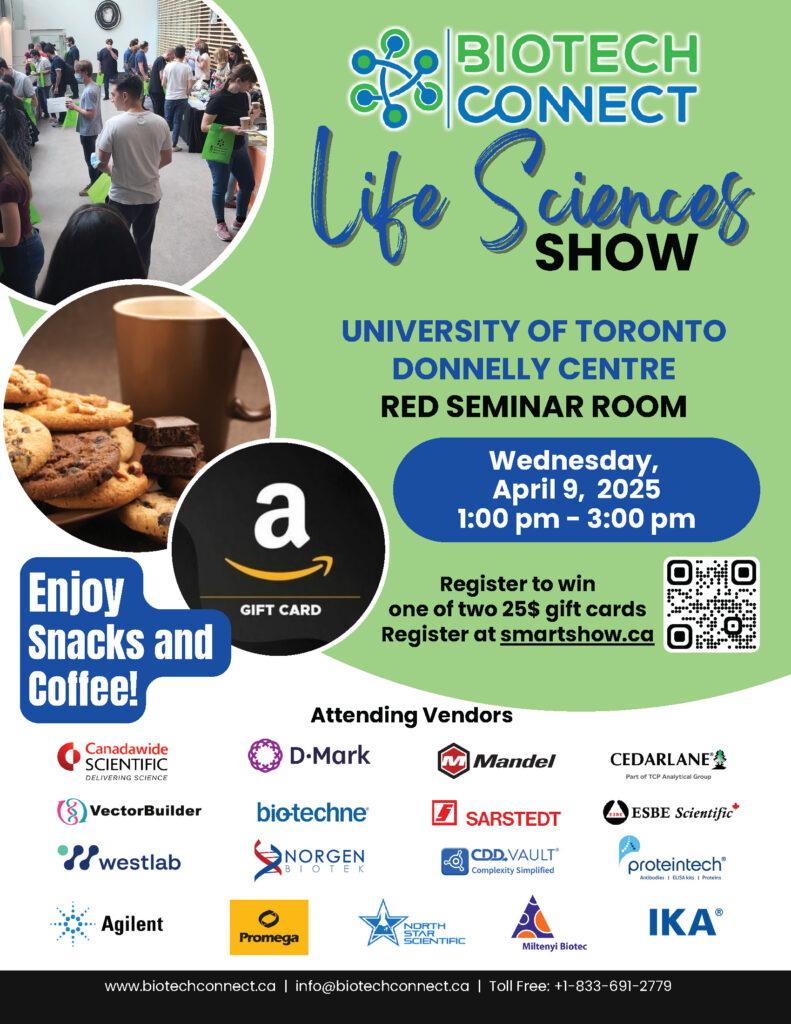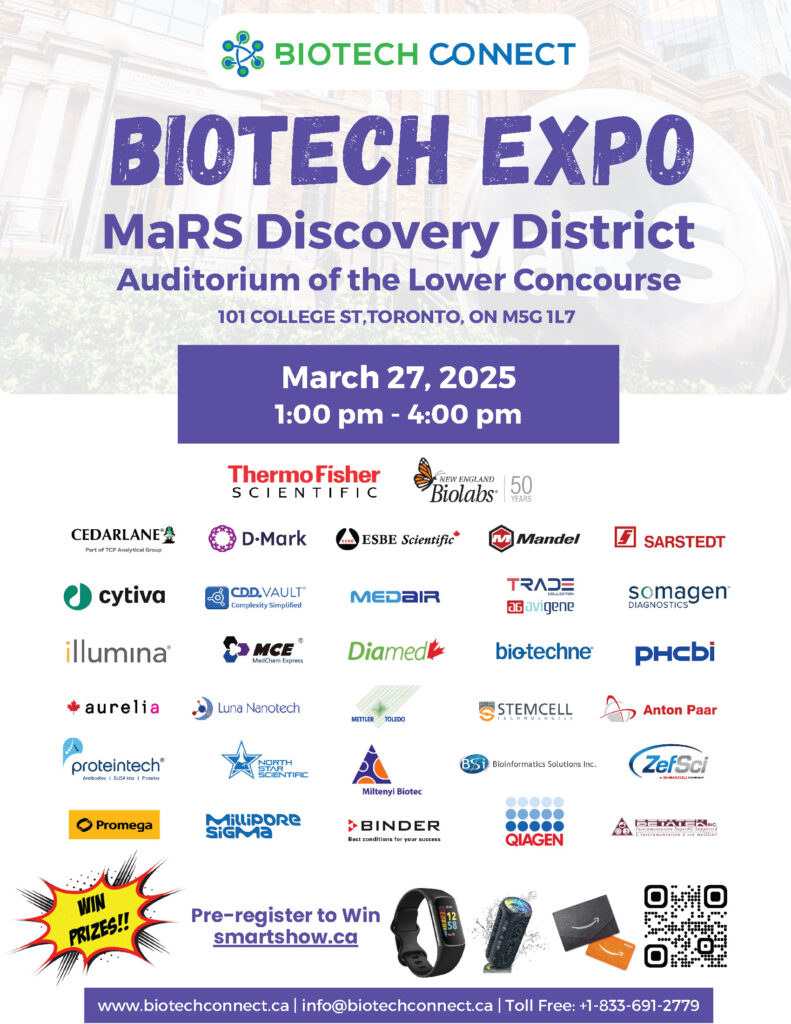
Looking for a summer job? Considering applying for Summer 2025 Work Study positions? Clubs & Leadership Development, Mentorship & Peer Programs, Orientation, Transition & Engagement and the Multi-Faith Centre are hiring various Work Study roles for the period from May 2025 to August 2025. These roles will be available to apply for on the CLNx Job Boards beginning on April 4,2025, at noon and will close on April 13, 2025, at 11:59 p.m. ET.
Additionally, we will be hosting an online information session to provide more information about the roles, as well as the application timeline and tips on how to boost your application.
Date: April 4, 2025
Time: 3:00 pm – 4:00 pm
Registration via Folio: https://folio.utoronto.ca/students/events/detail/5128912
Dear Final-Year Engineering PhD Students,
My name is Cony Qin (MEng, Mechanical & Industrial Engineering), and I am the student project lead for “Understanding Key Factors Impacting Doctoral Education in Engineering Fields”, supervised by Professor Ariel Chan, Chemical Engineering and Applied Chemistry.
We are conducting a survey to explore the key factors that influence doctoral education experiences and academic success among Engineering PhD students at U of T. The survey is open to all final-year PhD students in Engineering, and we would greatly appreciate your participation! The survey will remain open until April 18.
This survey is anonymous, and no personally identifiable information will be collected. Participation is voluntary, and you may withdraw consent at any time simply by choosing not to complete the survey.
Survey Link: https://forms.office.com/r/h14JSpHHqw
Thank you for your time and support!
Note: This project has been approved by the Faculty of Applied Science and Engineering, the University of Toronto’s Research Ethics Board, and the Office of the Vice-President & Provost (Human Research Protocol #47855). It adheres to ethical guidelines for data collection, storage, and privacy protection.
Your participation in this survey is greatly appreciated. Please direct any questions or concerns to cony.qin@mail.utoronto.ca or ariel.chan@utoronto.ca.

Schmidt Science Fellows – Online Briefings for Prospective Candidates:
Session 1
Date: Tuesday, April 1, 2025
Time: 9 am GMT+1 / 10 am CEST / 10 am SAST / 11 am EAT / 4 pm SGT / 7 pm AET
Register here (times best suited to audiences in Africa, Asia, Europe, and Oceania)
Session 2
Date: Wednesday, April 2, 2025
Time: 8 am PST / 11 am EST / 4 pm GMT+1 / 5 pm CEST / 5 pm SAST / 6 pm EAT
Register here (time best suited to audiences in Africa, Europe and North and South America)
MaRS Discovery District
When?
Thursday, March 27, 2025
1:00 pm – 4:00 pm
Where?
Auditorium of the Lower Concourse
Why visit?
- Discover recent innovations that can help you in the lab
- Meet your local sales specialist
- Sandwiches, desserts, and coffee will be served!!
- 25$ gift card to win (must be registered)
Click here (www.SmartShow.ca) to register now and skip the registration line at the show
See the flyer attached for more information

On behalf of the organizers, we have the pleasure to invite you to the 13thedition of the 2025 SUMMER SCHOOL ON NEUROREHABILITATION (SSNR2025) that will take place in Baiona, Spain from June 8 to 13, 2025. The objective of SSNR2025 is to provide in-depth education on advanced procedures for neurorehabilitation of motor cognitive dysfunction following neurologic and musculoskeletal conditions such as stroke, spinal cord injury, and amputation, covering practical applications based on innovative neuroprosthetic systems, robotic interfaces, personalized rehabilitation/neurorehabilitation, and other combinational approaches.
This is a reminder that the SSNR2025 early application deadline is March 7, 2025! Please see the website for more details and to apply.
If you are a senior researcher or professor, we would like to ask you to please forward this information to students who could be interested in attending. If you are a student, please forward this message to your colleagues.
———————————————————————————————–
SPEAKERS
———————————————————————————————–
Sunil Agrawal, Columbia University, USA – “Rehabilitation Robotics: Improving Everyday Human Functions”
Emilia Ambrosini, Politecnico di Milano, Italy
Vincent C. K. Cheung, The Chinese University of Hong Kong, Hong Kong, China – “Motor Modularity as a Theory of Neuromotor Control and its Relevance to Neuro-rehabilitation”
R. James Cotton, Shirley Ryan AbilityLab, USA – “Clinically Accessible, AI-Powered Movement Analysis”
Julius Dewald, Northwestern University, USA
Dario Farina, Imperial College London, United Kingdom – “Neural Interfacing in Bionics: Separation of Neural Drives to Muscles from Transferred Polyfunctional Nerves Using Implanted Micro-Electrode Arrays”
Oskar C. Aszmann, Medical University of Vienna, Austria – “Reconstructing limbs at the border of biology and technology- possibilities and limitations”
Antonio Bicchi, University of Pisa, Italy – “New directions in prosthetic research”
B.J. Fregly, Rice University, USA – “Designing Optimized Treatments for Movement Impairments using Personalized Neuromusculosketal Models”
Olivier Lambercy, ETH Zurich, Switzerland – “Neurorehabilitation robotics: Unsupervised robot-assisted therapy along the continuum of care”
Maarten Lansberg, Stanford University, USA – “Neurorehabilitation From the Perspective of a Stroke Neurologist”
Natalie Mrachaz-Kersting, Albert–Ludwigs–Universität Freiburg, Germany
James Patton, University of Illinois at Chicago, USA – “Methods for mechanically inducing beneficial neuroplasticy for recovery”
Miriam Rafferty, Shirley Ryan AbilityLab, USA – “Accelerating technology adoption: Connecting engineering and design to clinical implementation”
———————————————————————————————–
WORKSHOPS
———————————————————————————————–
Hands-on workshops and interactive activities are held throughout SSNR2025 where students will team up to address key issues in neurorehabilitation.
WS1 – Synergy-based multichannel functional electrical stimulation (FES) in gait rehabilitation
This workshop will introduce the application of multichannel functional electrical stimulation (FES) for gait rehabilitation. Students will learn how muscle synergy quantification can be used to drive FES and assess rehabilitation outcomes. The workshop will also introduce methods for designing a personalized synergy-based FES strategy. Through hands-on activities, Students will record and process electromyography (EMG) signals, compute muscle synergies, and reconstruct activation profiles targeting specific muscle synergies. They will also gain practical experience applying synergy-based FES using advanced devices provided by the organizers. Additionally, the workshop will provide clinical perspectives on the use of synergy-based FES, including its potential and challenges for improving gait rehabilitation in individuals with neurological disorders.
WS2 – Neuromusculoskeletal Modeling Pipeline Training Workshop
This hands-on workshop will introduce the Neuromusculoskeletal Modeling (NMSM) Pipeline (https://nmsm.rice.edu), which is open source Matlab-based software that adds Model Personalization and Treatment Optimization toolsets to the OpenSim musculoskeletal modeling software. Attendees will learn how to use the four tools available in the Model Personalization toolset and the three tools available in the Treatment Optimization toolset. Starting with a scaled generic OpenSim model and experimental motion capture, ground reaction, and EMG data, the Model Personalization toolset allows users to personalize 1) joint functional axes, 2) muscle-tendon model properties, 3) neural control model properties using muscle synergies, and 4) foot-ground contact model properties. Next, starting with this personalized model and the same experimental data, the Treatment Optimization toolset allows users to perform: 1) a Tracking Optimization that closely reproduces experimental joint motion, ground reaction, joint moment, and EMG data simultaneously using muscle synergy controls, 2) a Verification Optimization that verifies the muscle synergy controls found by Tracking Optimization can reproduce all available experimental data without tracking it, and finally, 3) a Design Optimization that performs predictive simulations to design a clinical intervention. Students will also have the opportunity to test and complete mini-simulation projects.
WS3 – Control of lower limb rehabilitation robotics
This workshop focuses on the control and interconnectivity of ankle robotic devices for rehabilitation. The workshop introduces the basic principles of the design of the lower limb robotics used, modifications made, software used and solutions adopted. Students will explore BusCan and ROS data transmission protocols, interconnection of external control devices to rehabilitation robotics, control drivers, rehabilitation robotic device parameter sharing, feedback, and parameters.
WS4 – Natural Integration of Bionic Limbs via Spinal Interfacing
Natural BionicS aims to create a fully integrated, symbiotic replacement for missing or damaged parts of the human body with artificial limbs that the user will feel and command as a true part of their body. This is achieved by the breakthrough concept of surgically creating bio-connectors to bidirectionally access the spinal cord circuitries. The bio-connector enables to extract information from spinal motor neurons, unravelling the neural code for movement, and to deliver information into the spinal circuitries by stimulating transplanted biological organs. The deciphered neural code provides the ability to replicate the movement of the missing limb on revolutionary robotic limbs that are designed for soft and natural mechanical interaction with the environment. The encoded stimulation will re-establish sensory input as occurring during natural movement, thereby closing the sensory-motor loop. This workshop will discuss mechatronic design and interfacing, covering topics such as variable stiffness, control of assistive devices based on residual motion capabilities, haptic feedback, SoftFoot Pro, SoftHand X, and more.
WS5 – How to use ROS and ROS-Neuro with a brain-computer interface (BCI) system to connect external devices for rehabilitation and assistance
In this workshop, we want to present the steps in order to build a Brain Computer Interface (BCI) that allows users to control an external device. This technology can be used in the rehabilitation field using the EEG signals. We will use our open-source framework based on ROS called ROSNeuro, which facilitates the building of a BCI system. The workshop will be subdivided into three days to provide examples of BCI and the knowledge of a motor imagery BCI (MI-BCI) system.
WS6 – Sensorless Assessment of Motor Function
MOVE 4D is a 4D scanning tool for biomechanics and functional assessment. It allows dynamic analysis of shape in movements and provides insightful clinical information. It can be used as a reliable markerless device for human movement analysis. It can also be used as a contactless system to monitor muscle activation for the assessment of pathologies and rehabilitation. The workshop will provide applications for the analysis of gait in people with cerebral palsy and stroke.
WS7 – Collecting and interpreting end-user feedback: Introduction to methods in design and implementation science
Many innovative devices go unused—how can you ensure yours is adopted by end-users? This workshop explores the intersection of Implementation Science and User-centered design, focusing on the critical role of end-user feedback on device development. Participants will learn practical methods for collecting, analyzing, and interpreting end-user feedback to refine their designs. Each session will begin with a didactic overview of feedback methodologies, including surveys, focus groups, interviews, and think-aloud or near-live testing. Following the introduction to each method, we will conduct interactive exercises where students will apply these techniques in real-time, and conclude with hands-on introduction to data analysis and interpretation to inform device improvements. Throughout the workshop, participants will engage in discussions, hands-on activities, and expert guidance to deepen their understanding of user-centered development. Break out of the research silo and discover how to effectively integrate end-user feedback to create devices that truly meet user needs.
More workshop details will be updated here:
https://2025.summerschoolneurorehabilitation.org/workshops/
———————————————————————————————–
CONTRIBUTIONS
———————————————————————————————–
Students are encouraged to submit contributions to SSNR2025! 2 page abstracts can be submitted to be considered for oral presentation and/or included in the Proceedings. Students can also display posters throughout SSNR.
For further and up-to-date information, please visit the conference website:
https://2025.summerschoolneurorehabilitation.org
We are looking forward to welcoming you in Baiona, Spain in June 2025!
Best regards,
The SSNR Organization Committee
e: info@summerschoolneurorehabilitation.org